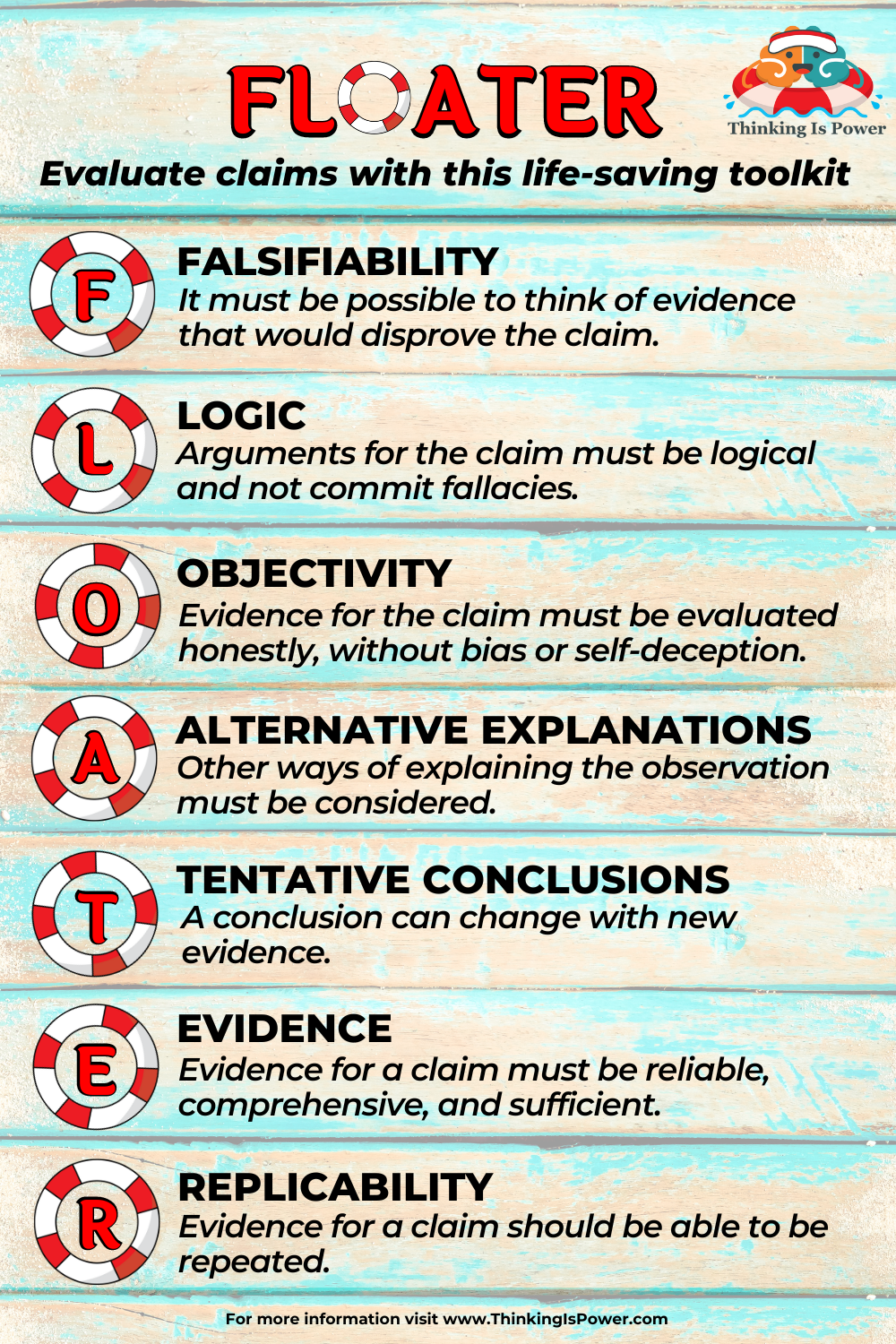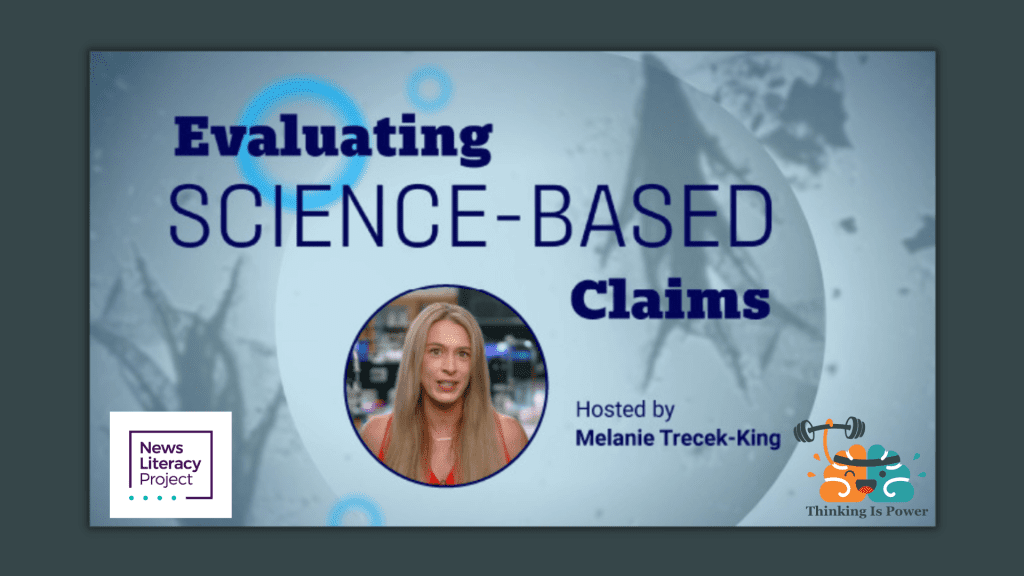News Literacy Project Checkology lesson exploring how to use the FLOATER toolkit
From News Literacy Project: “Evaluating Science-Based Claims” boosts students’ science literacy
“Evaluating Science-Based Claims” teaches students how to evaluate science-based claims using an easy acronym, FLOATER (Falsifiability, Logic, Objectivity, Alternative explanations, Tentative conclusions, Evidence and Replicability), developed by the lesson’s host, Melanie Trecek-King. Trecek-King is a scientist and a teacher at Massasoit Community College in Brockton, Massachusetts. She advocates for science literacy on her website, thinkingispower.com.
About the lesson from Checkology:

Learn how to recognize science-based claims and assess their credibility; explore why people resist and deny science; and gain the skills to evaluate science journalism.
Learning objectives
- I can differentiate between science-based claims and nonscience claims.
- I can explain why science is never 100% certain about anything and why this is one of its strengths.
- I can differentiate between a scientific hypothesis and a scientific theory.
- I can explain what makes people vulnerable to pseudoscience and why some people doubt, resist and deny the scientific consensus about some topics.
- I can evaluate science-based claims using plausibility judgments, evidence and the scientific consensus.
- I can recognize common problems with science news coverage.
Essential questions
- How can people know which science-based claims are worthy of acceptance?
- What is science? Why is it a reliable way of knowing things about the natural world?
- What makes people doubt or resist science? Or What makes science misinformation seem “right”?
- How should I decide which claims and pieces of information about science topics to trust?
- Why do people sometimes believe hypotheses that are not supported by evidence?
- How do scientists attempt to identify real associations/causes without falling for false associations/causes?
- Can scientists ever avoid error entirely?

Pingback: Mike’s News Apr 15 | Mike's News